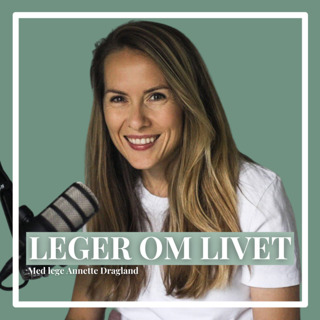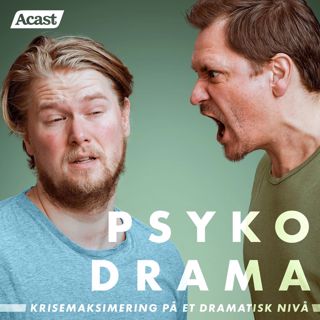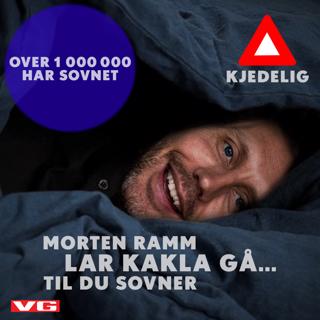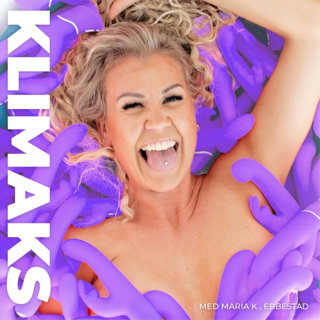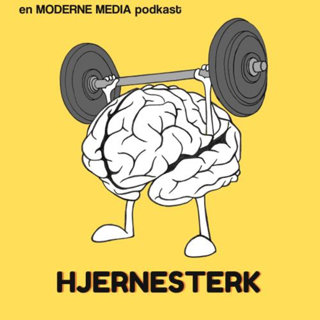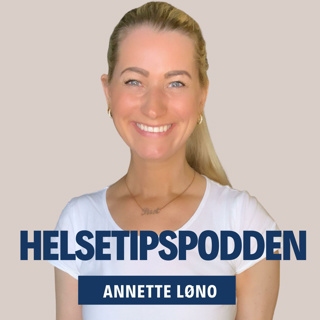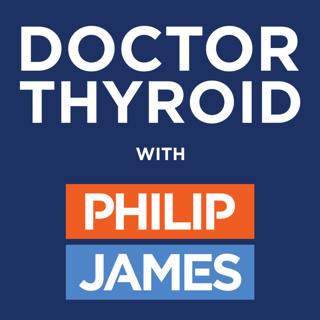
65: Thyroid Cancer Does Not Respond to RAI⎢Treatment Options
Ezra Cohen, MD, is a board-certified oncologist and cancer researcher. He cares for patients with all types of head and neck cancers, including esophageal, thyroid and salivary gland cancers. Dr. Cohen is also an internationally recognized expert on novel cancer therapies and heads the Solid Tumor Therapeutics program at Moores Cancer Center. Much of his work has focused on squamous cell carcinomas and cancers of the thyroid, salivary gland, and HPV-related oropharyngeal cancers. As a physician-scientist, he is especially interested in developing novel therapies and understanding mechanisms of sensitivity or resistance; cancer screening; and using medication and other agents to delay or prevent cancer (chemoprevention). He was recently appointed chair of the National Cancer Institute Head and Neck Cancer Steering Committee, which oversees NCI-funded clinical research in this disease. Dr. Cohen is editor-in-chief of Oral Oncology, the most respected specialty journal in head and neck cancer. A frequent speaker at national and international meetings, he has authored more than 120 peer-reviewed papers and has been the principal investigator of multiple clinical trials of new drugs in all phases of development. In this episode, topics include: Drug therapy for patients that fail standard therapy; including surgery and RAI Not all patients have same behavior for their cancer Some cancers are aggressive Not many thyroid cancer patients are affected by this; maybe a few thousand in the U.S., but not tens of thousands What is the treatment protocol for therapy? Lenvatinib or Sorafenib is the treatment for refectory thyroid cancer Lenvatinib tends to be more effective Sorafenib is tolerated by the patient better Other options to consider include, molecular profiling or some thyroid cancers carry mutation that is targetable, or BRAF BRAF inhibitors used with thyroid cancer patients Molecular profiling DNA sequencing Side effects include, what patient will feel and those that appear in blood tests Side effects include fatigue in 60% patients, hand or foot blisters, nausea and vomiting Side effects in blood tests include high blood pressure, increase in liver enzymes, and a reduction in blood counts VEGF receptor CT scans and ultra sounds or thyroglobulin as an indicator that thyroid cancer not responsive to traditional therapy We don’t want to make the patient feel worse; the question is when to treat the patient with drug therapy Drug treatment does no cure the disease Holidays from the drug and be rid of side effects When restarting drug, disease responds again Pediatric care Immunotherapy NOTES Ezra Cohen, MD American Thyroid Association
8 Des 201724min

64: Managing Indeterminate Thyroid Nodules, with Dr. Kimberly Vanderveen from Denver Center for Endocrine Surgery
Kimberly Vanderveen, MD is a Colorado native and graduate of Bear Creek High School in Lakewood, CO. She received her bachelor’s degree with honors from Muhlenberg College in Allentown, PA. She then earned her medical degree from Northwestern University in Chicago, IL in 2001. Dr. Vanderveen completed her surgical residency at UC-Davis in Sacramento, CA. During her residency, she also obtained a master's degree in Clinical Research and was actively involved in cancer research and education. After her surgical training, Dr. Vanderveen completed a fellowship in Endocrine Surgery at the Mayo Clinic in Rochester, MN. She is knowledgeable in both medical and surgical aspects of endocrine diseases. She specializes in surgery for diseases of the thyroid, parathyroid, adrenal glands and is a high volume neck and adrenal surgeon. In this episode, the following topics are discussed: Two roads of tests: rule out and malignant markers Rule-out tests picks up innocent behavior pattern. Most common is Afirma Malignant markers, or rule-in tests, are useful at determining extent of surgery, and help avoid a second or third surgery. ThyroSeq, ThyraMIR, Rosetta Do patients get both tests? Rule out and behavior? Approximately 15% of FNA’s come back indeterminate. Some centers as high as 30% Managing indeterminate nodules when a patient chooses no surgery. Taking into account emotional, financial, and lifestyle goals of the patient. Addressing priorities and goals of the patients should come first. Additional molecular testing, surgery, or active surveillance. Profiling a patient who choose to remove thyroid even if indeterminate — is usually due to fear and the C word. Price of molecular test is $3000 - $6000 NOTES Kimberly Vanderveen, MD American Thyroid Association PAST EPISODES 50: Regarding Thyroid Cancer, Are You a Minimalist or a Maximalist? with Dr. Michael Tuttle from Sloan Kettering 35: Rethinking Thyroid Cancer – When Saying No to Surgery Maybe Best for You with Dr. Allen Ho from Cedars-Sinai in Los Angeles 22: Avoiding Thyroid Cancer Surgery, Depending on the Size with Dr. Miyauchi from Kuma Hospital in Kobe, Japan 09: Thyroid Cancer Patients Experience Quality of Life Downgrade with Dr. Raymon Grogan and Dr. Briseis Aschebrook from the University of Chicago Medicine 08: The Financial Burden of Thyroid Cancer with Dr. Jonas de Souza from The University of Chicago Medicine
9 Nov 201732min

62: Treating Thyroid Patients For 40 Years ⇒ Lessons Learned from Two Patients, with Dr. Elaine Kaptein from USC
A native of Saskatchewan, Canada, Dr. Kaptein began teaching at the Keck School of Medicine in the Endocrinology Division in 1977. She became a tenured Professor of Medicine in 1990, a position she currently holds. Dr. Kaptein is a distinguished member of the Western Society for Clinical Investigation, American Society of Nephrology, the Endocrine Society and the American Thyroid Association. An accomplished researcher and lecturer, Dr. Kaptein has been invited to speak on the topics of Endocrinology and Nephrology in such cities as Montreal, Milan, Tel Aviv, Jerusalem, Vienna and Rotterdam, to name a few. In this interview, Dr. Kaptein discusses the need to consider each patient before making treatment decisions. In some cases, this may mean foregoing the removal of cancerous lymph nodes. NOTES American Thyroid Association Dr. Elaine Kaptein
21 Okt 201724min

61: Drug Resistant Thyroid Cancer, with Dr. Carmelo Nucera from Harvard Medical School
Carmelo Nucera, M.D., Ph.D., is currently an Assistant Professor at Harvard Medical School, Boston, in the Division of Cancer Biology and Angiogenesis (Department of Pathology), Beth Israel Deaconess Medical Center. Dr. Nucera received his M.D. and Ph.D. in Experimental Endocrinology and Metabolism from Italy. Dr. Nucera is highly driven by an intense desire to make important contributions that will directly benefit patients. Dr. Nucera is strongly committed to make discovery aimed to immediately cure patients that are suffering with aggressive tumors and rare/orphan cancer disease. Dr. Nucera has a clinical background and intensely served patients with fatal human diseases. In this episode, Dr. Nucera discusses a combination drug therapy using vemurafenib and palbociclib represents a novel therapeutic strategy to treat papillary thyroid carcinoma (PTC). NOTES Carmelo Nucera Researchers identify novel therapeutic strategy for drug-resistant thyroid cancers Publication: Thyroid Cancer and resistance to BRAFV600E inhibitors American Thyroid Association
19 Okt 201739min

59: No Biopsia es 100% Exacta⎥Exámenes Moleculares son los Mejores, con Dr. Paul Y. Casanova
Dr. Paul Y. Casanova-Romero, M.D., M.P.H., F.A.C.P., F.A.C.E, E.C.N.U, que se unió a Palm Beach Diabetes y Endocrine Specialists en 2012, recibió su grado médico con honores (Summa Cum Laude) y Doctor en Ciencias Médicas (DMSc), de la Universidad de Zulia, la Escuela de Medicina en Venezuela. Posteriormente se unió a la facultad de su Alma Mater y en 1998, el Grupo de Investigación del Programa de Prevención de la Diabetes (D.P.P.) en el Instituto de Investigación de la Diabetes-Universidad de Miami. Completó su posgrado en Medicina Interna y Endocrinología (Jackson Memorial Hospital) y estudios de postgrado en Salud Pública (M.P.H.) con el Premio de Mérito Académico en la Universidad de Miami. Un consultor privado endocrinólogo y orador nacional desde 2006, el Dr. Paul Y. Casanova-Romero de investigación extensa sobre la prevención de la diabetes, trastornos de la tiroides, síndrome metabólico y otros trastornos endocrinos han sido ampliamente publicadas. Sigue colaborando en estudios de investigación en Estados Unidos y Latinoamérica, el más reciente en pruebas moleculares de tiroides. El Dr. Casanova-Romero está certificado por la Junta en Medicina Interna, así como en Endocrinología, Diabetes y Metabolismo. Es miembro del Colegio Americano de Endocrinología (F.A.C.E.) y miembro del Colegio Americano de Médicos (F.A.C.P.). Actualmente es profesor voluntario de medicina en la Universidad de Miami. Dr. Paul Y. Casanova-Romero se especializa en el tratamiento de la enfermedad de la tiroides incluyendo nódulos tiroideos, hipotiroidismo, hipertiroidismo y cáncer de tiroides, enfermedad paratiroidea, diabetes, pre-diabetes, trastornos lipídicos y otros trastornos endocrinos. Él ha estado usando la prueba molecular para la caracterización de los nódulos de la tiroides desde 2010. Él ha satisfecho con éxito los requisitos para la certificación endocrina en el ultrasonido del cuello (ECNU) para realizar la biopsia internamente guiada por ultrasonido de la aspiración de la aguja fina de nódulos de tiroides, de la paratiroides, nodos. Es miembro del panel de membresía de la American Thyroid Association, miembro activo de la Endocrine Society, la Asociación Americana de Endocrinólogos Clínicos, la American Diabetes Association, el American College of Physicians y la National Lipid Association. En esta entrevista hablamos sobre esta temas: ¿Cómo se identifican los nódulos y por qué ocurren? autoexamen o en la oficina del médico La mayoría de los nódulos son benignos pero ocurren porque en mas de 70% de la población ¿Qué tests puede realizar un médico para evaluar el nódulo? Ninguna test es 100% Ultrasonido - qué están buscando en general Que es ojo fina y el proceso general Tests moleculares ¿Qué tipos de resultados se pueden obtener de la citología y qué significan? La mayoria de ojo finas son benigno Maligno o sospechoso de malignidad, todavía tiene la posibilidad de no ser cáncer Los arco iris - 3,4,5 - indeterminate categoria Systema BETHESDA ¿Qué tests adicionales se pueden realizar para resolver los nódulos indeterminados? - Tests moleculares Que son todas los tests moleculares? Y son las mismas? Dr. Casanova prefiere usar test de Afirma, este es por que MAS INFORMACIÓN Dr. Paul Casanova American Thyroid Association (español) La prueba de la expresión génica de Afirma puede reducir cirugías innecesarias del cáncer de tiroides Afirma
29 Sep 201734min

57: The Gut⎥Antibiotics Danger, Fixing Inflammation, and Thyroid Health
Dr. Lisa Sardinia is an associate professor in the Pacific University Biology Department. She received a B.S. in Biology from Whitworth College, a Ph.D. in Microbiology from Montana State University and a J.D. from the University of California, Hastings College of the Law. Following graduate school, she was awarded a National Cancer Institute research fellowship at the University of California, San Francisco studying molecular genetics. At Pacific University, she teaches Molecular Biology, Microbiology, Basic Science for Optometry and Human Genetics for Physician Assistants. She has been the recipient of the Thomas J. and Joyce Holce Endowed Professorship in Science and the S.S. Johnson Foundation Award for Excellence in Teaching at Pacific University. In the episode, we discuss: Microbiome Microbes inside the gut Gut microbe biota 95% of serotonin manufactured in gut Dark chocolate and bacteria in your gut Probiotics Prebiotics are food that we eat that has food for good bacteria Soluble fiber Eat food that feeds your gut bacteria Whole grains, black beans, cruciferous vegetables Dark chocolate benefit – the darker the better Most disruptive to gut biome is antibiotics Danger: antibiotics with children Majority of antibiotics given to children under three are for upper respiratory issues, fact is antibiotics do not work for such issues 85% of antibiotics used are given to food sources, and released into the environment including soil and water Danger of consuming emulsifiers Cow’s milk US has low gut diversity — more diversity means more resilience Autism and gut connection Resetting your gut microbiota by changing diet The importance of starting kids out with the right food Inflammatory disease is seen less in underdeveloped countries Avoid emulsifiers, additives, and artificial sweeteners NOTES The American Gut Michael Pollan ‘Some of My Best Friends Are Germs’ An Epidemic of Absence How Emulsifiers Are Messing with Our Guts (and Making Us Fat)
25 Sep 201731min

52: Cancer Phobia?⎥Don't Sacrifice Your Thyroid, with Dr. José A. Hakim - Hospital Universitario Santa Fe de Bogotá
Dr. José A. Hakim realiza más de 400 cirugías al año. Es cirujano general. Especialista en cirugía de cabeza y cuello en relación con el cáncer. En este entrevista, hablamos sobre: No todos los cánceres de tiroides deben ser operados. No todos los nódulos tiroideos deben ser biopsiados. La mitad de la población tiene nódulos tiroideos. El 10% de esos nódulos tienen cáncer. En Colombia, 2,5 millones de personas tienen cáncer de tiroides. 15 millones de personas tienen cáncer de tiroides en los Estados Unidos, y lo más probable es que no lo sepan. Los estudios muestran que el 30% de los cadáveres tienen nódulos tiroideos con cáncer. Comprender las repercusiones de hacer una biopsia. Si se trata de un nódulo que no requiere cirugía, incluso si es cáncer, decirle a un paciente esto a veces hace más daño en la forma de estrés emocional que lo que es necesario. No sacrificar una tiroides debido a la fobia. La carga es en el médico para no desencadenar paranoia y estrés en el paciente diciéndoles que "podría" tener cáncer, en el caso de llevar a cabo una biopsia en un nódulo cuando no es necesario. Una tiroidectomía cambia una vida, incluyendo la piel seca, aumento de peso, calcio, pérdida de voz o cambio de voz - estos pueden ser peores que vivir con cáncer de tiroides papilar. ¿Qué necesita ocurrir en la comunidad médica para cambiar el paradigma que no necesitamos para operar en todo el cáncer de tiroides? La patología es la clave para cambiar el paradigma. El cáncer no es igual en todos los casos. Piense en el cáncer de tiroides similar a la vista sobre el cáncer de próstata en los hombres.
29 Aug 201722min

48: Innovaciones en el Tratamiento del Cáncer de Tiroides, con el Dr. Hernán Tala desde Santiago, Chile
Dr. Hernán Tala es endocrinólogo de la Clinica Alemana en Santiago, Chile. Su area especialidad incluye cáncer de tiroides avanzado, endocrinologia general, y enfermedades tiroides. Los temas presentados incluyen: Una mejor comprensión de la biología del cáncer de tiroides, y que no todo el cáncer de tiroides es igual. La enfermedad es única en cada paciente. La importancia de entender el perfil del cáncer en cada paciente. Diagnóstico del nódulo. Perfil molecular del nódulo tiroideo. Una pausa en la exploración universal del cáncer de tiroides. Vigilancia activa Menos radiación, o ningún tratamiento de radiación en los casos que anteriormente recibirían radiación La importancia para los médicos de compartir una comprensión universal de la vigilancia activa, por lo que los pacientes obtener una recomendación coherente. Hipotiroidismo en pacientes con tiroidectomía total. El cáncer de tiroides es lento en comparación con otros tipos de cáncer. Qué se requiere para la adopción adicional de la innovación del tratamiento del cáncer de tiroides. Los riesgos de la cirugía de la tiroides. REFERENCIA: Clinica Aleman Dr. Hernán Tala Facebook American Thyroid Association (español) 35: Rethinking Thyroid Cancer – When Saying No to Surgery Maybe Best for You with Dr. Allen Ho 21: Diagnosed with Thyroid Cancer and You Say No to Surgery with Dr. Louise Davies 41: Molecular Profiling and Unnecessary Thyroid Surgeries with Jennifer Kuo from Columbia University
10 Aug 201747min




